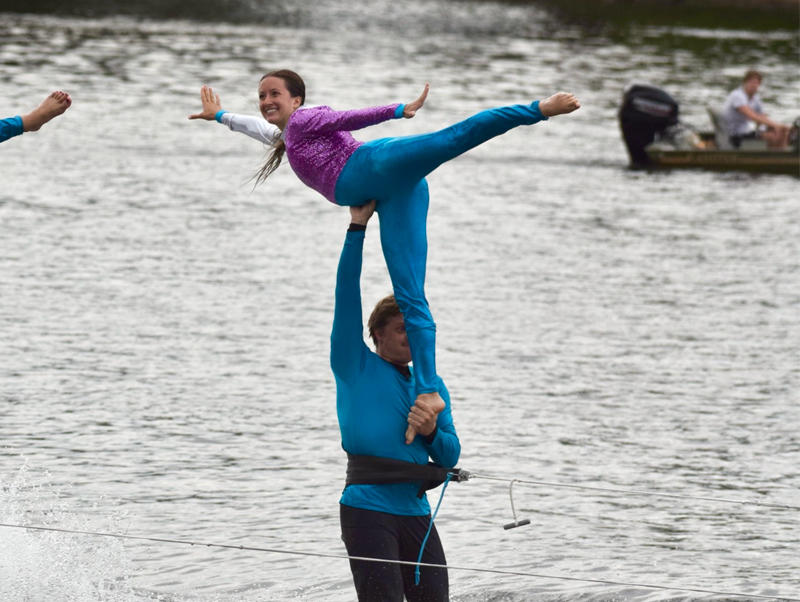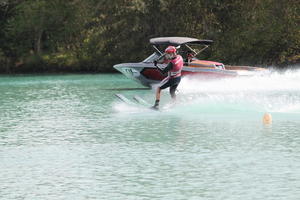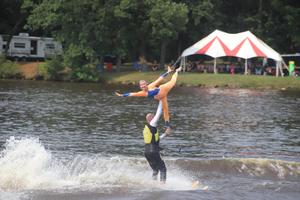Skiing and schoolwork are a balancing act for two DDS learners

Two DDS learners are making a splash in and out of the classroom, balancing full-time dental school with team waterskiing.
Charlie Brimacombe, DDS ’26, started skiing for the same reason he pursued dentistry—it was all in the family.
Brimacombe watched in awe as his father provided excellent oral care and became a role model for his community. “Seeing the impact he had on the community, beyond treating patients, inspired me,” he said. With waterskiing, Brimacombe’s parents taught him the sport they both loved.
At first, he wasn’t interested. “I didn’t like the idea of falling in the water,” he explained. But over time, he fell in love with the sport—joining the team during his undergraduate years at UW Madison, and again at the University of Minnesota.
Keisha Kappel, DDS '25, grew up in a Northern Wisconsin town that loved waterskiing, which meant she was also surrounded by it from a young age. Her crafty nature and desire to work with her hands brought her to dentistry, while a love for physical and mental fitness inspired her to continue waterskiing. Today, Kappel is a member of a Twin Cities-based team.
Both learners recognize that it’s rare to commit to such a time-consuming sport while also pursuing a DDS degree. They both ski four to five times a week, with Brimacombe engaging in other team obligations and Kappel participating in shows every Thursday. It’s not an easy feat.
But despite the challenges, the balancing act comes with benefits, too. “It really encourages me to work harder in school,” said Brimacombe. “If I get my schoolwork done, it means I can go ski. Plus, I’m not sitting on a stressful topic for too long, because I have to get out and ski.”
Kappel agreed, noting that it provides breaks and helps her find structure. “It’s a great study break to go do something active for four hours, and that benefits my learning,” she said. “I think I would go crazy if I didn’t have something other than school to focus on.”
Waterskiing in particular has also better prepared the two for their futures. Brimacombe thinks of the times that he’s sustained mouth injuries in hard falls, and the experience makes him more empathetic toward his patients. “It’s just another way to understand people who want to stay in a competitive impact sport,” he said. “I can give them suggestions that I use myself, and it helps me connect with my patients.”
For Kappel, the nature of her team has helped her gain great communication skills. “I’m on a team with people from age four to sixty,” she said. “You learn how to have a conversation with anyone—which really helps me approach people in the cubicle who are at all different stages of life.”
Both learners are grateful that they have continued skiing through school—even if it’s hard. And the experience has reminded them of the importance of moving outside one’s comfort zone and trying new things.
“If you’re ever interested in a hobby and you don’t know if you’ll be good at it, just go do it,” advised Brimacombe. “There are so many people on our team that never thought they’d ski. If you take that leap, you might just fall in love with it.”

